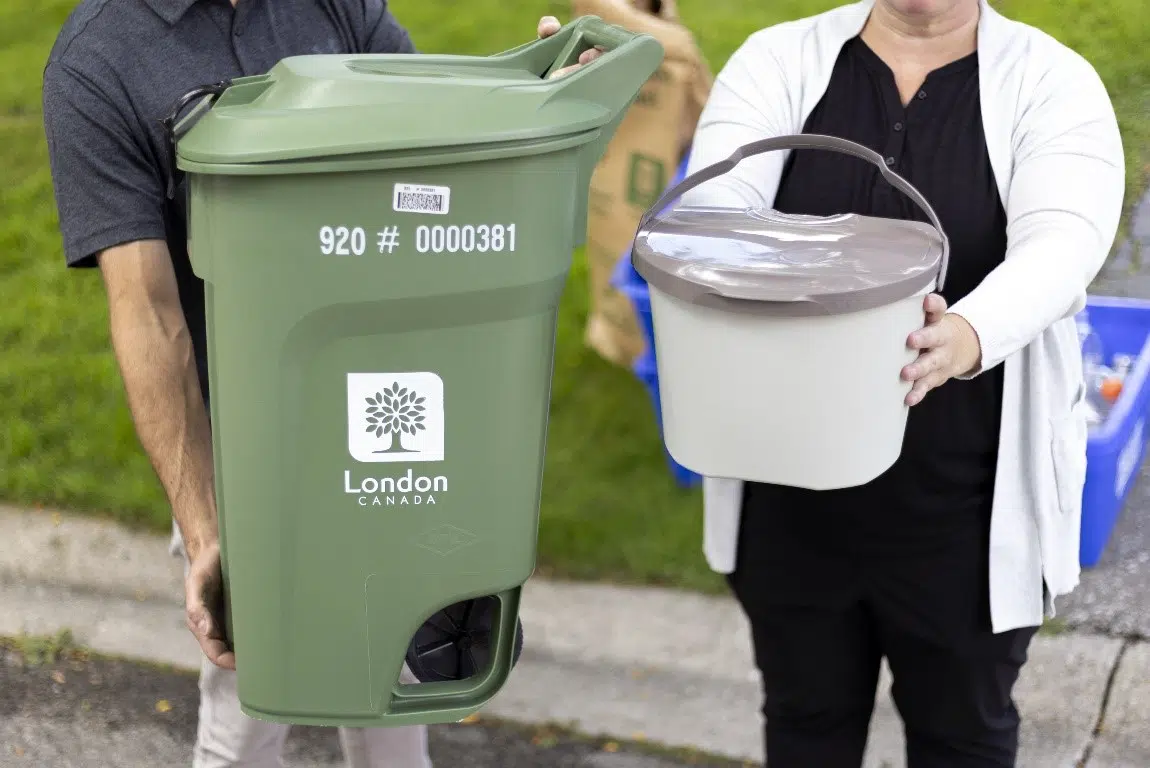
(Photo Credit: City of London) London has integrated their new green bin program, but nearly 30 years after St. Thomas began theirs.
With the city’s recent integration of their green bin program, Londoners have started raising some questions about the overall effectiveness of their impact.
One of the biggest problems being raised is that moves such as this are either too little too late or there is no motivation on an individual level to commit to the cause.
“I’d definitely say that one of the biggest things that people are concerned about is, “why should I change when it’s the corporations and big-business that is doing all the harm,”” says Christine Wardle, a Sustainability consultant with Fanshawe College.
“I can understand that mindset, but I try to explain that, yes, corporations are definitely a huge problem and no one is ever saying that they aren’t, but it’s our individual actions as well that will have an impact, however small that impact may be.”
The City of London has said they’re striving towards net-zero greenhouse gas emissions by the year 2050 supported by new science-based targets for 2030, 2035, and 2040.
Although, this comes after other communities, such as the nearby city of St. Thomas, having had active compost programs for nearly 30 years.
Wardle says, even though the city is late to the party and motivation towards active environmental efforts has been on the decline, she does see some promise coming from the youth in the city.
“I think, honestly, one of the biggest things that I think is really good is that the younger generations are becoming more aware of these things and they’re starting to care a lot more than generations previous to them,” says Wendle.
“Since the Industrial revolution we’ve been trashing the earth and it’s really catching up to us now and younger people are starting to realize, “what is it going to be like when I get old,” so they’re starting to implement changes.”
She goes on to say that the biggest preventer from being environmentally focused is the lack of a base-level passion for it, adding that finding ways to integrate the mindset with your regular activities may be one of the best ways to contribute.
“For me, I’ve always been very passionate about zero waste, but also just doing more sustainable outdoor activities. I’m really big into camping and hiking, so the way my zero waste can fall into that is instead of bringing these pre-packed snacks, bringing food that I’ve made at home or dehydrated.”
The largest programs seen in the city is the recently added green bin program as well as the focus on cycling and public transit, with millions of dollars being invested across them both in recent years.
“Doing things like active transportation, so instead of using your car all the time, using your car or you bike or even use the public transit. A lot of buses in the city have bike racks, so if you’re too far to walk, you can still bike and then go where you need to go. Just being more active in your transportation is going to help for sure.”
Wardle says that when people think of becoming more environmentally conscious, people assume that they need to fully adapt to the lifestyle, but she says that this is more of a common misconception. She says that there are easy ways for Londoners to slowly integrate with becoming a better environmental advocate.
“Definitely trying to reduce your waste, it’s always good to do the things that we can. Bamboo toothbrushes, bar shampoos, that kind of stuff. Also eating a more plant based diet, not necessarily cutting out meat altogether, but eating less will always make a huge contribution. The meat industry is a very big CO2 producer.”
Even though global events, trends, and overall belief in climate change efforts have become a controversial subject, Wardle says that there is still plenty to be optimistic about in regards to the future of our planet.



Comments